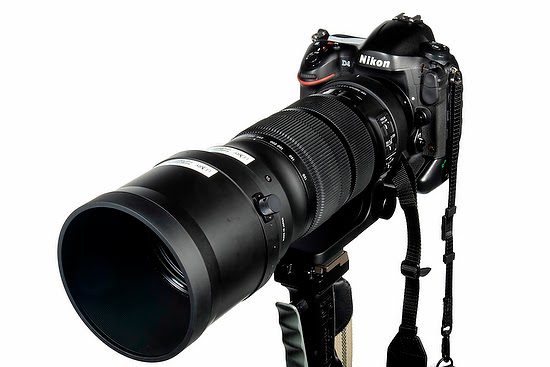While I reviewed this lens a year ago, I am now buying the Sigma 120-300mm f/2.8 DG OS HSM Lens for the Nikon mount. So here it is on my Nikon D4.
The Sigma was more of an upgrade. Buying the newer version would be like selling your older car after getting 12 years of use of it and then buying a new one.
Until last night, I owned the original Sigma 120-300mm.
Here is a screen grab of the eBay listing I did to sell the lens. I sold it in less than 24 hours. But unfortunately, I didn’t list it until I had the other lens.
I listed the lens for sale using 11 photos, with this one being the main photo. Most people want to see everything.
I did differently this time by including photos taken with the lens.
These are all the photos I put up to sell the lens. In addition, two of the four images I posted taken with the lens were ones published in Sports Illustrated. I think this helped to sell the lens.
Too many people think that if it isn’t a Nikon or Canon lens, Sports Illustrated will not use it. I even had one photographer say this to me while standing next to me at a football game, trying to put down my lens. I laughed out loud at him and said that is funny because look at this week’s SI, and you can see the photo. Then he started back peddling and asked how big it ran.
Here is that photo.
All this is to say the lens I bought twelve years ago was great and did an excellent job through the years. However, I was replacing it because the newer technology that has come along makes it possible to get even sharper photos.
Sigma introduced a USB docking station that only works with their “Global Lenses,” and the 120-300mm is one of those lenses. Micro-adjust settings change the focus position bias and provide many exciting options for photographers who like to tinker with their equipment to get the best results. I am one of those photographers.
I do not have the funds to buy all the lenses now available in this focal length and test them. When I purchased the first lens, there were no other options except fixed lenses.
I highly recommend always going to the DXOMark website and looking at their test results on the lenses you are interested in buying. For example, I reviewed the DXOMark website when I wanted to see if I should buy the Nikon 200-400mm or get the newer Sigma 120-300.
The chart below is the side-by-side comparison of a Nikon D4. Another cool thing is you can check the results on your camera if they tested it.
I was also just a little curious about the Canon 200-400mm and how it measured up to it. So I compared it.
You can click on this comparison to see it larger. The bottom line is for sharpness; it was pretty equal.
Price Comparison:
- Sigma $3,599
- Nikon $6,749
- Canon $11,749
you get what you pay for
In commercial transactions, the quality of goods and services increases as the prices increase, i.e., the more one pays, the better the merchandise.
Well, the test results on these lenses and my experience with the Sigma lenses proved the old English proverb wasn’t always correct.
If you buy the lens, then be sure and buy the USB Dock and calibrate the lens. Here is a blog post I did about this process.
After I did all this research, I just looked for who had the lens and could get it to me at the best price. The best price nowadays was more about who offered free shipping because the price was pretty much the same no matter where you looked.
Stay tuned in the future, and I will be sure to post many photos from this lens.







